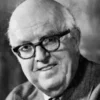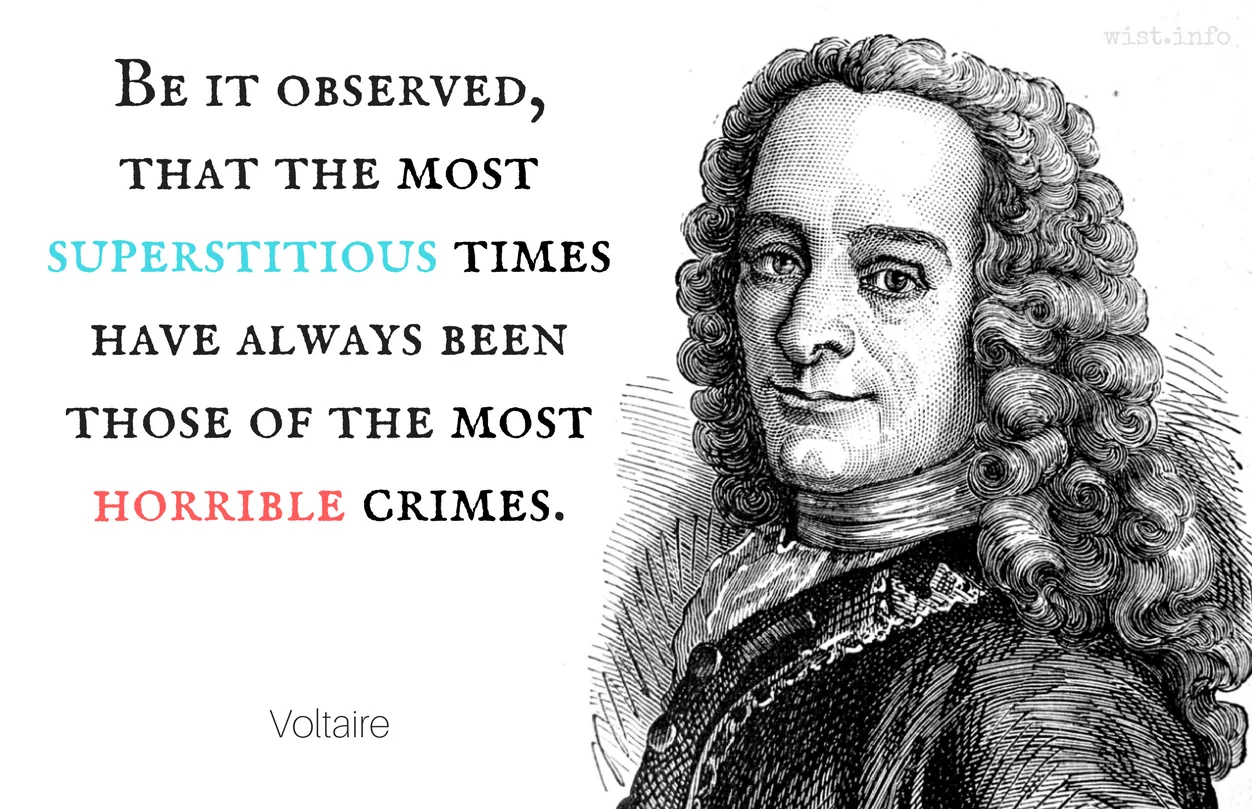Defenceless villages are bombarded from the air, the inhabitants driven out into the countryside, the cattle machine-gunned, the huts set on fire with incendiary bullets: this is called pacification. Millions of peasants are robbed of their farms and sent trudging along the roads with no more than they can carry: this is called transfer of population or rectification of frontiers. People are imprisoned for years without trial, or shot in the back of the neck or sent to die of scurvy in Arctic lumber camps: this is called elimination of unreliable elements. Such phraseology is needed if one wants to name things without calling up mental pictures of them.
George Orwell (1903-1950) English writer [pseud. of Eric Arthur Blair]
Essay (1946-04), “Politics and the English Language,” Horizon Magazine
(Source)
Quotations about:
atrocity
Note not all quotations have been tagged, so Search may find additional quotes on this topic.
When you think of the long and gloomy history of man, you will find that far more, and far more hideous, crimes have been committed in the name of obedience than have ever been committed in the name of rebellion.
C. P. Snow (1905-1980) English novelist, physical chemist, bureaucrat [Charles Percy Snow]
“The Moral Un-Neutrality of Science,” speech, American Association for the Advancement of Science, New York City (27 Dec 1960)
(Source)
Reprinted in Science (27 Jan 1961) and then in Public Affairs (1971).
All the Dachaus must remain standing. The Dachaus, the Belsens, the Buchenwalds, the Auschwitzes — all of them. They must remain standing because they are a monument to a moment in time when some men decided to turn the Earth into a graveyard. Into it they shoveled all of their reason, their logic, their knowledge, but worst of all, their conscience. And the moment we forget this, the moment we cease to be haunted by its remembrance, then we become the gravediggers.
I had discovered what one man could do to another. I am not talking about one man killing another with a gun, or dropping a bomb on him or blowing him up or torpedoing him. I am thinking of the vileness beyond all words that went on, year after year, in the totalitarian states. It is bad enough to say that so many Jews were exterminated in this way and that, so many people liquidated — lovely, elegant word — but there were things done during that period from which I still have to avert my mind lest I should be physically sick. They were not done by the headhunters of New Guinea, or by some primitive tribe in the Amazon. They were done, skilfully, coldly, by educated men, doctors, lawyers, by men with a tradition of civilization behind them, to beings of their own kind. I must say that anyone who moved through those years without understanding that man produces evil as a bee produces honey must have been blind or wrong in the head.
William Golding (1911-1983) British novelist, playwright, poet
“Lord of the Flies as Fable,” Lecture, UCLA (1962)
(Source)
Reprinted in The Hot Gates (1965).
If lawyers had followed the norm of no execution without trial, if doctors had accepted the rule of no surgery without consent, if businessmen had endorsed the prohibition of slavery, if bureaucrats had refused to handle paperwork involving murder, then the Nazi regime would have been much harder pressed to carry out the atrocities by which we remember it.
Timothy Snyder (b. 1969) American historian, author
On Tyranny: Twenty Lessons from the Twentieth Century (2017)
(Source)
History is thought of largely in nationalist terms, and such things as the Inquisition, the tortures of the Star Chamber, the exploits of the English buccaneers (Sir Francis Drake, for instance, who was given to sinking Spanish prisoners alive), the Reign of Terror, the heroes of the Mutiny blowing hundreds of Indians from the guns, or Cromwell’s soldiers slashing Irishwomen’s faces with razors, become morally neutral or even meritorious when it is felt that they were done in the “right” cause. If one looks back over the past quarter of a century, one finds that there was hardly a single year when atrocity stories were not being reported from some part of the world; and yet in not one single case were these atrocities — in Spain, Russia, China, Hungary, Mexico, Amritsar, Smyrna — believed in and disapproved of by the English intelligentsia as a whole. Whether such deeds were reprehensible, or even whether they happened, was always decided according to political predilection.
George Orwell (1903-1950) English writer [pseud. of Eric Arthur Blair]
“Notes on Nationalism” (May 1945)
(Source)
Be it observed, that the most superstitious times have always been those of the most horrible crimes.
Voltaire (1694-1778) French writer [pseud. of Francois-Marie Arouet]
“Superstition,” sec. 4, Philosophical Dictionary (1764) [tr. Besterman (1971)]
(Source)
You are certainly right in insisting on the strong metaphysical needs of mankind; but religion appears to me to be not so much a satisfaction as an abuse of those needs. At any rate we have seen that in regard to the furtherance of morality, its utility is, for the most part, problematical, its disadvantages, and especially the atrocities which have followed in its train, are patent to the light of day.
[So hast du gewiß Recht, das starke metaphysische Bedürfniß des Menschen zu urgiren: aber die Religionen scheinen mir nicht sowohl die Befriedigung, als der Mißbrauch desselben zu seyn. Wenigstens haben wir gesehn, daß in Hinsicht auf Beförderung der Moralität ihr Nutzen großentheils problematisch ist, ihre Nachtheile hingegen und zumal die Gräuelthaten, welche in ihrem Gefolge sich eingestellt haben, am Tage liegen.]
Arthur Schopenhauer (1788-1860) German philosopher
Parerga and Paralipomena, Vol. 2, ch. 15 “On Religion [Ueber Religion],” § 174 “A Dialogue [Ein Dialog]” (1851) [tr. Saunders (1890)]
(Source)
(Source (German)). Alternate translation:You are certainly right in advocating the strong metaphysical needs of mankind; but religions appear to me to be not so much a satisfaction as an abuse of those needs. At any rate we have seen that, in view of the progress of morality, its advantages are for the most part problematical, while its disadvantages, and especially the enormities which have appeared in its train, are obvious.
[tr. Dircks]You are certainly right in insisting on man's strong metaphysical need. Religions, however, seem to me to be not so much a satisfaction but an abuse thereof. at any rate, we have seen that, as regards the encouragement of morality, their use is to a great extent problematical, whereas their disadvantages, and especially the atrocities that have followed in their train, are as clear as the light of day.
[tr. Payne (1974)]









